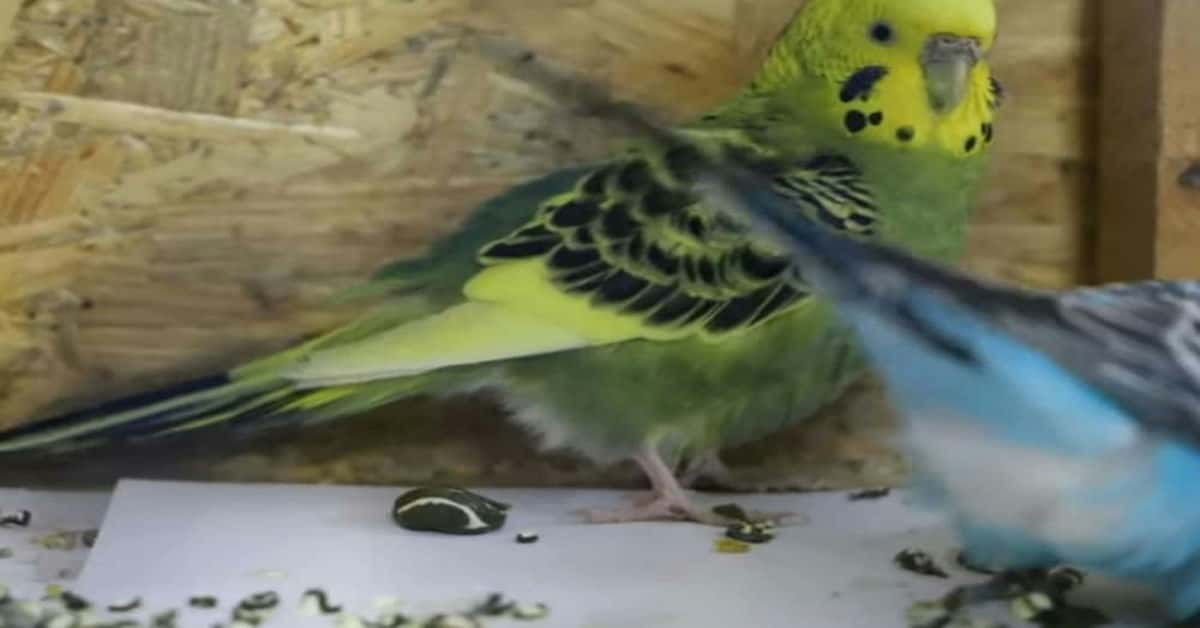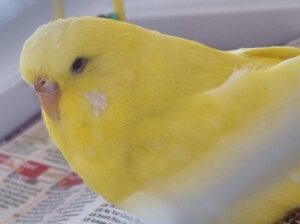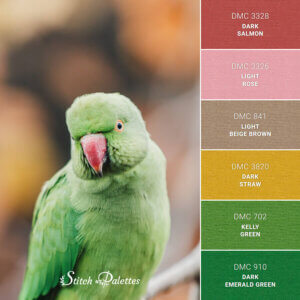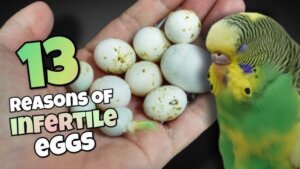Why Is My Budgies Poop Thick?
Thick poop in budgies can be caused by diet changes, dehydration, illness, or even egg-laying in females. A lack of water or a seed-heavy diet often leads to thicker droppings.
Budgies are small, lovable birds that make great pets. But sometimes, you’ve noticed your budgie’s poop is thicker than usual; it could be a sign of various health issues.
Budgies are delicate creatures, and their droppings can tell us a lot about their health. Sometimes, changes in diet or stress can cause thicker poop, but in other cases, it may point to more severe conditions like dehydration or digestive issues.
In this blog, I am exploring common reasons for thick budgie poop and what you should do to ensure your feathered friend stays healthy.
What Causes Thick Poop in Budgies?
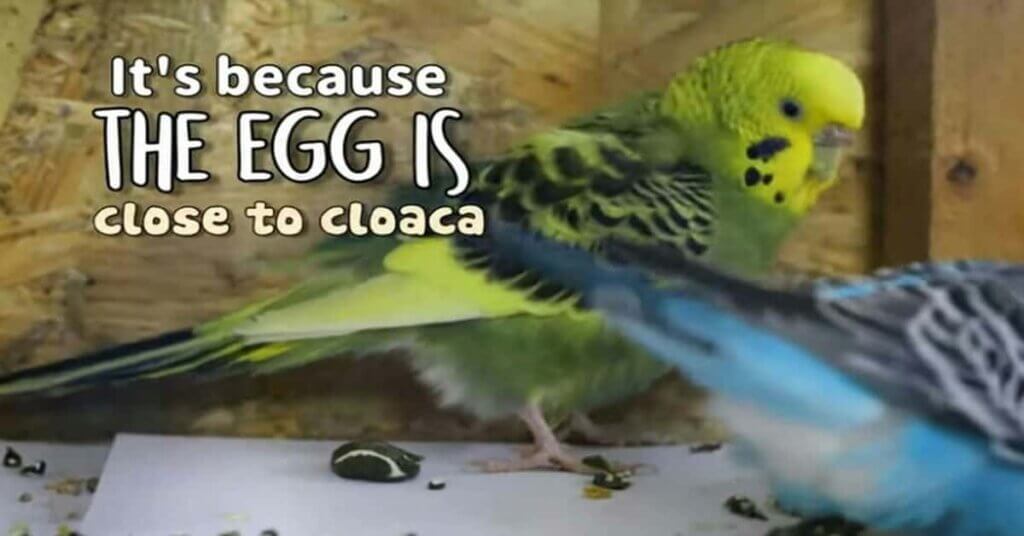
Budgie poop can vary in texture for different reasons. Let’s look at the main causes.
1. Changes in Diet
If you’ve recently switched your budgie’s food, this could be the reason for the thicker poop. Seeds, fruits, and certain pellets can affect the consistency of their droppings.
Suppose your budgie has been mainly eating seeds that are hard to digest. They might not be getting enough moisture from their diet. This can cause their poop to become thick and harder to pass.
Here are some seed examples which can cause thick poop:
- Sunflower seeds: These are high in fat and can cause dehydration if consumed in excess.
- Millet: While millet is a favorite of budgies, too much can lead to thicker droppings due to its dryness.
- Safflower seeds: These are also rich in fat, and overconsumption may result in less hydrated poop.
- Hemp seeds: Although nutritious, they are dense and can contribute to thick poop when not balanced with other food sources.
If thick poop is caused by a poor diet, try to add more variety to your budgie’s meals. Incorporate more fresh vegetables like spinach, carrots, and broccoli. These foods contain water and will help improve digestion.
2. Dehydration
Budgies need to drink water frequently. If they’re not drinking enough, their poop can become thick due to dehydration.
Make sure your budgie always has access to fresh water. Thick poop could be a sign that your budgie isn’t drinking enough water, especially in hot weather.
However, Budgies should be drinking 1-2 teaspoons (5-10 ml) of water daily. Check if their water dish is clean and filled.
3. Stress and Environment
Stress plays a big role in your budgie’s health. Your budgie could be stressed if you’ve recently changed their cage location, introduced new pets, or even moved house.
Stress can lead to changes in poop consistency, including making it thicker. Ensure your budgie has a comfortable, quiet space away from loud noises or too much activity.
Spend time with them and offer toys to keep them entertained.
4. Parasites or Infections
Sometimes, thicker poop can indicate parasites or an infection. If your budgie’s poop is thick and you notice other symptoms like lethargy, weight loss, or lack of appetite, it’s best to visit a vet.
They will run tests and recommend the best course of treatment to get your budgie back to good health. Budgies can get infections from dirty cages or contaminated food.
Dr. Jane Walters, an avian vet, states, “Budgies are prone to infections that can impact their digestive health. A sudden change in poop consistency should always be monitored.”
5. Digestive Problems
If your budgie’s poop has been consistently thick over several days, there may be an issue with their digestion.
Blockages in the digestive system can make it harder for food to pass through, leading to thicker droppings. A low-fiber or low-moisture diet can contribute to these problems.
6. Egg Laying (for Female Budgies)
Female budgies may have thicker poop when they are laying eggs. This happens because they often hold in their poop for longer than normal while nesting. It’s a natural process, but if the poop stays thick for a long time, consult a vet.
Read more- How Often Do Budgies Poop?
What To Do If Your Budgie’s Poop Is Thick
If you notice thick poop, don’t panic right away. First, review your budgie’s diet and make sure it’s balanced. Add more fresh veggies and fruits if you think the diet is too dry.
Also, ensure that the water bowl is always full and clean. Sometimes, thick poop may clear up with simple adjustments.
However, if the poop stays thick for several days or your bird shows other signs of illness, it’s time to visit the vet. Early action can prevent more severe health issues.
Veterinarians agree that monitoring your budgie's poop is a key part of keeping your bird healthy. According to Dr. Jane Smith, a bird specialist, “Any changes in a budgie’s poop should be observed. Small changes can be harmless, but it's better to get a vet's opinion if it lasts more than a couple of days.”
How to Prevent Thick Poop in Budgies
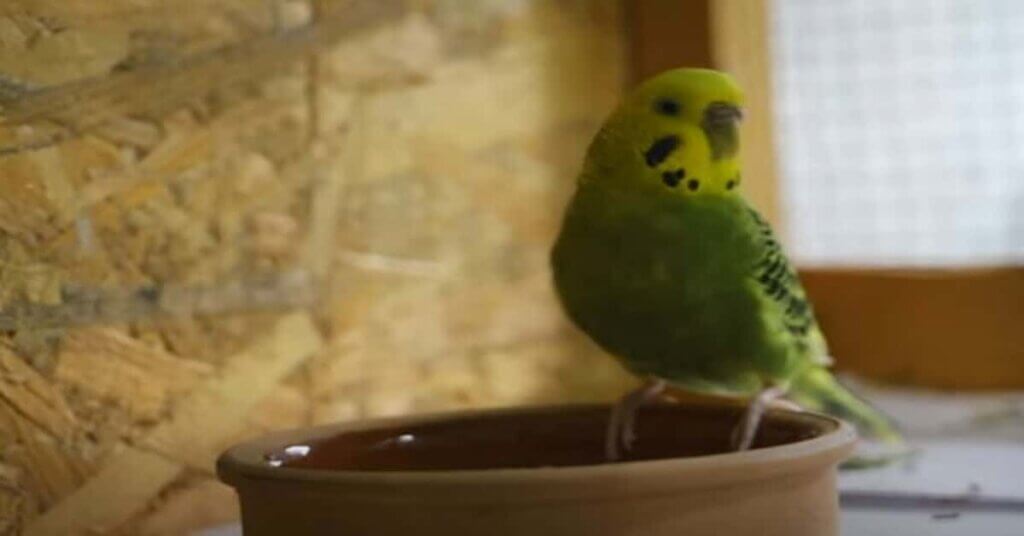
Preventing thick poop in budgies involves a combination of proper diet, hydration, and overall care. Here are some key points to consider:
- Balanced Diet: Offer a mix of seeds, pellets, fruits, and vegetables to keep your budgie’s diet well-rounded. Foods high in fibre, such as leafy greens, arugula and carrots, can help maintain healthy digestion. Avoid an excessive amount of high-fat seeds like sunflower and safflower seeds. These can dry out your budgie’s poop.
- Clean Water: Always provide fresh water. Dehydration can lead to thicker droppings, so encourage your budgie to drink regularly. You can also include watery fruits like cucumber or watermelon in their diet.
- Avoid Too Many Treats: Limit treats like millet spray. While budgies love millet, too much can lead to dry, thick droppings. Give treats in moderation.
- Regular Vet Visits: Schedule regular check-ups with an avian vet. They can monitor your budgie’s health and provide advice tailored to your pet’s needs.
- Clean Environment: Keep your budgie’s cage clean. Regular cleaning can help prevent any waste buildup that might affect their health.
- Stress Management: Minimize stressors in your budgie’s environment. Stress can affect their digestive health, so ensure they have a comfortable and secure living space.
- Monitor Changes: Monitor your budgie’s droppings. If you notice any significant changes in consistency, color, or frequency, consult your veterinarian promptly.
By focusing on these aspects of care, you can help prevent thick poop and promote overall digestive health in your budgie.
Budgie Poop Color Chart

Here is a concise budgie poop color chart Description:
- Green/Brown Poop: Normal if your budgie is eating seeds or pellets. A balanced diet should lead to this color.
- White Urates with Green/Brown: Indicates healthy kidney function; normal.
- Black Poop: Could indicate internal bleeding. Seek veterinary help.
- Bright Green Poop: Can indicate liver issues or a diet high in green vegetables.
- Yellow Poop: May indicate liver disease or infection.
- Red/Bloody Poop: Emergency sign of internal bleeding or heavy metal poisoning. Seek immediate vet care.
- Watery Poop: Could be due to stress, diet, or illness (diarrhea). Monitor hydration.
- Pale/Chalky White Poop: Often related to dehydration or kidney issues. Consult a vet.
Each color provides clues about your budgie’s health, so use this chart to monitor changes in their droppings and respond accordingly.
Why Is My Budgie’s Poop So Big And White?
Budgie poop can vary in size and color based on several factors, including diet and health. Large, white droppings may indicate that your budgie is consuming a lot of fruits and vegetables, which can lead to more liquid waste.
The white part of the poop is urine, which is usually more pronounced when the bird is well-hydrated.
However, if you notice changes in size, consistency, or color (like very pale or chalky), it could indicate health issues such as dehydration or digestive problems. If you’re concerned, it’s best to consult an avian vet for a thorough check-up.
You can also read – Why My Budgie Poop is Watery?
When Should You Be Worried? When To See a Vet
While thick poop can often be related to diet or dehydration, it can also be a symptom of a serious issue.
If you notice any of the following along with thick poop, consult a vet:
- Blood in the poop
- Lethargy
- Weight loss
- Loss of appetite
- Feather plucking
These symptoms, combined with thick poop, could indicate an underlying health issue that needs urgent attention.
Wrapping Up
Budgies are sensitive to changes in their diet, water intake, and environment. Their poop is one of the easiest ways to monitor their health.
If your budgie’s poop is thicker than normal, it’s usually something you can fix by adjusting their diet or ensuring they’re drinking enough water.
However, if the problem persists, it’s essential to consult a vet to rule out any serious health issues.
By keeping a close eye on your budgie’s poop and taking action when you notice changes, you’ll help them live a long and happy life.

